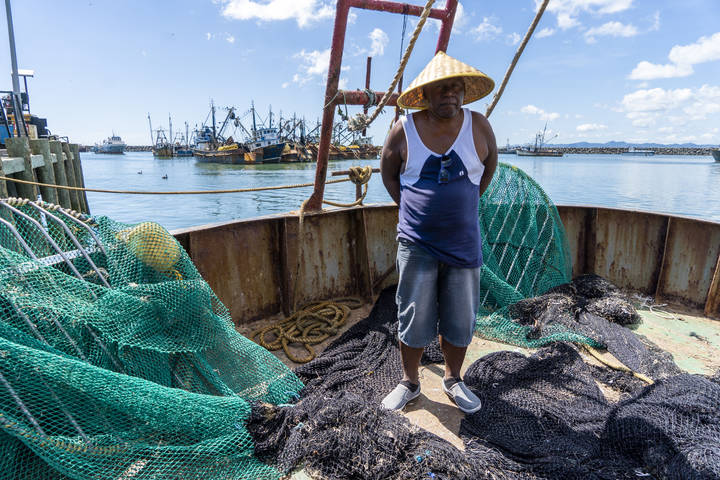Expected benefits of Responsible Fishing practices

- © FAO/Alberto Gonzalo Sanz
Expected benefits of FAO's work in this area include the development and implementation of responsible practices for sustainable fisheries and the reduction of impacts of fishing operations on ecosystems. More specifically, these will include:
- Reduction of ALDFG in the marine environment globally;
- Improved management of fishing gear use and disposal in recipient countries;
- Reduced incidences of bycatch of both fish and non-fish species of unwanted, threatened or protected species globally including marine mammals;
- Positive socio-economic and food security benefits to coastal communities, especially in Small Island Developing States (SIDS) and in artisanal fishing communities including through reduced incidences of food loss through ‘ghost fishing’, discards and bycatch;
- Improved energy efficiency and greenhouse gas (GHG) emissions of fishing operations, and through implementing circular economy approaches within the fisheries sector;
- Development of tools to more quickly react to emergency situations;
- Improved collaboration across the lead UN agencies working to address marine litter, in particular UNEP and IMO;
- Improved collaboration between regional fisheries bodies (RFBs), including regional fisheries management organizations (RFMOs), and other relevant regional entities;
- Enhanced measures to detect and mitigate illegal, unreported and unregulated (IUU) fishing.
